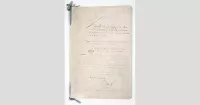A referendum is a direct vote by the electorate on a specific proposal, law, or political issue. It's also known as a plebiscite or ballot measure. Referendums can be either binding, where the outcome directly determines the action taken, or advisory, where the result serves as guidance for decision-makers. This form of direct democracy allows citizens to express their views on important matters, influencing policy and governance.
1916: Australian conscription referendum
In 1916, an Australian conscription referendum was held, although it did not concern constitutional matters.
1933: António de Oliveira Salazar used referendums to legitimize authority
In 1933, António de Oliveira Salazar made use of referendums as well as show elections to further legitimize their authority.
1934: Benito Mussolini and Adolf Hitler used referendums to legitimize authority
In 1934, Benito Mussolini and Adolf Hitler made use of referendums as well as show elections to further legitimize their authority.
1936: Adolf Hitler used referendums to legitimize authority
In 1936, Adolf Hitler made use of referendums as well as show elections to further legitimize their authority.
1947: Francisco Franco used referendums to legitimize authority
In 1947, Francisco Franco made use of referendums as well as show elections to further legitimize their authority.
1949: Polls in Newfoundland
Polls in Newfoundland (1949) were counted under a form of the two-round system
1957: Multiple choice referendums in Sweden
In 1957, Sweden held a multiple choice referendum where voters were offered three options.
1972: Park Chung Hee used referendums to legitimize authority
In 1972, Park Chung Hee made use of referendums as well as show elections to further legitimize their authority.
1973: Ferdinand Marcos used referendums to legitimize authority
In 1973, Ferdinand Marcos made use of referendums as well as show elections to further legitimize their authority.
1977: Australian national anthem referendum
In 1977, a referendum was held in Australia to determine a new national anthem, presenting voters with four choices.
1977: Australian referendum winner decided by preferential instant-runoff voting (IRV)
In the 1977 Australian referendum, the winner was chosen by the system of preferential instant-runoff voting (IRV).
1980: Multiple choice referendums in Sweden
In 1980, Sweden held a multiple choice referendum where voters were offered three options.
1982: Guam referendum
In 1982, Guam held a referendum that included six options, along with a blank option for write-in candidates.
1992: New Zealand poll used an unusual form of TRS
An unusual form of TRS was used in the 1992 New Zealand poll.
1992: New Zealand referendum on electoral system
In 1992, New Zealand conducted a five-option referendum on their electoral system.
2005: Italian fertility laws referendum
In the 2005 Italian fertility laws referendum, opponents campaigned for abstention to lower turnout, leading to invalid results despite a majority voting for changes.
2009: Article in The Economist on California's government
A 2009 article in The Economist argued that citizens' initiatives restricted the ability of the California state government to tax and pass the budget, calling for a new constitution.
2009: Western Australian daylight saving referendum
In 2009, a referendum on daylight saving was held in Western Australia. The referendum did not affect either the federal or state constitution.
2017: Suspension of Catalonia's independence referendum
In 2017, the Spanish Constitutional Court suspended Catalonia's independence referendum following a challenge.
2018: Irish Citizens' Assembly on Referendums
In 2018, the Irish Citizens' Assembly considered how future referendums in Ireland should be conducted, with a majority favoring more than two options and preferential voting.
2021: European Court of Human Rights extends jurisdiction to referendums
In 2021, the European Court of Human Rights extended its jurisdiction to referendums with the judgment Toplak and Mrak v. Slovenia, initiated by disabled voters over polling place access.
Mentioned in this timeline
California is a U S state on the Pacific Coast...
New Zealand is an island country in the southwestern Pacific...
Australia officially the Commonwealth of Australia encompasses the Australian mainland...

A constitution serves as the foundational legal document for any...
Sweden officially the Kingdom of Sweden is a Nordic country...
Guam is an organized unincorporated territory of the United States...
Trending

12 minutes ago Cleetus McFarland to debut in NASCAR Truck Series; Pastrana returns to Daytona.

12 minutes ago Keanu Reeves' John Wick game announced for PlayStation 5, developed by Saber Interactive.

12 minutes ago Anthony Anderson discusses health, diabetes, and career on 'Uncensored' and reveals his net worth.

13 minutes ago Amon-Ra St. Brown: Ranking Football Talent, Lions News, and Basketball Background

13 minutes ago Jeremy Lin's Post-Linsanity Journey: From NBA to Celebrity Game and 2026 All-Star

13 minutes ago Tony Stewart returns to NASCAR Truck Series with Ram at Daytona, supported by Dana White.
Popular

Kid Rock born Robert James Ritchie is an American musician...
The Winter Olympic Games a major international multi-sport event held...

Barack Obama the th U S President - was the...

Pam Bondi is an American attorney lobbyist and politician currently...

XXXTentacion born Jahseh Dwayne Ricardo Onfroy was a controversial yet...

Michael Joseph Jackson the King of Pop was a highly...